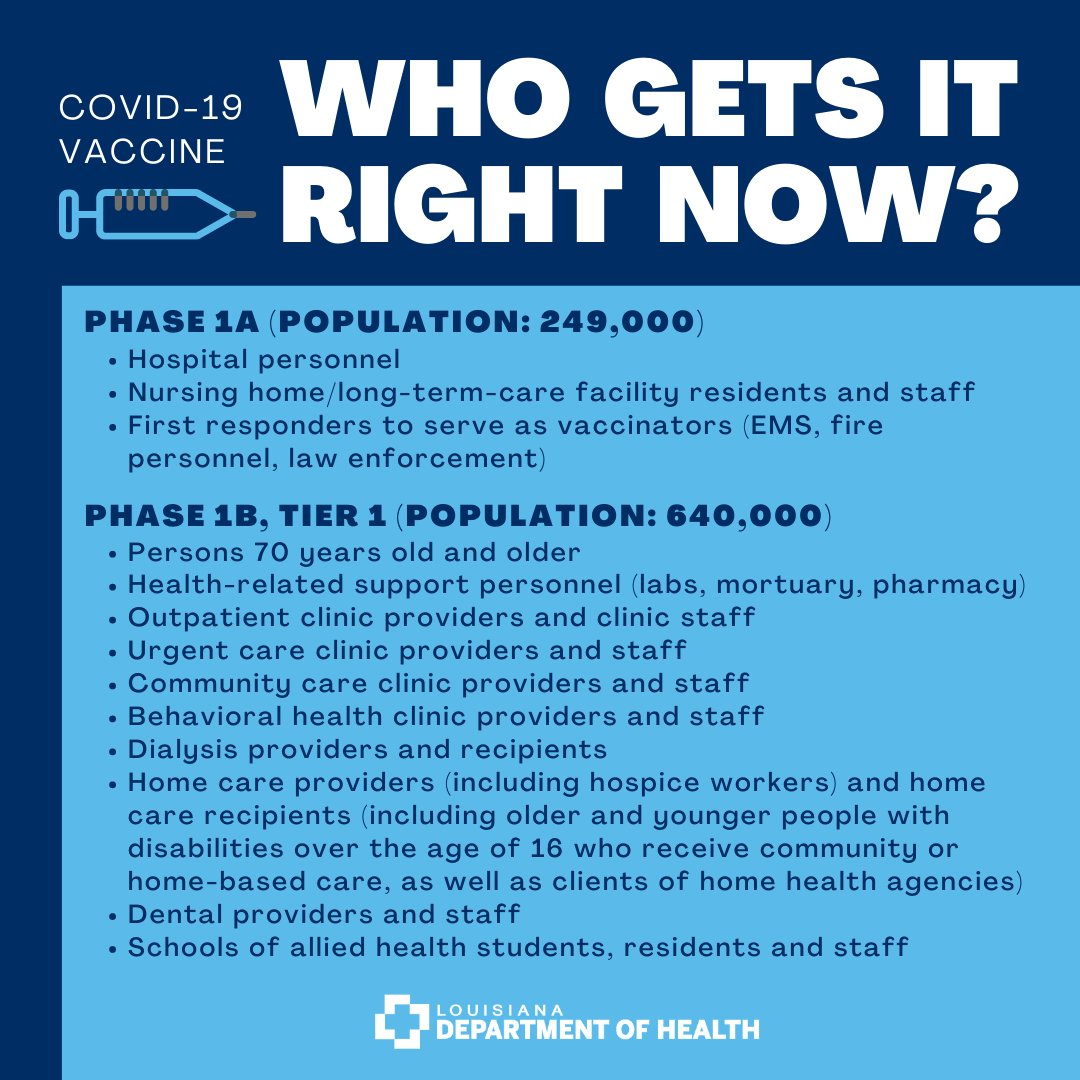JANUARY NEWSLETTER
COVID-19 RELIEF FUNDING
Louisiana school districts are poised to receive nearly 4x more COVID-19 relief funding under the latest federal relief plan. This aid does come with restrictions in how districts may allocate the funds, but it is a much needed and long overdue step towards a reprieve for our educators and students who have been ‘making it work’ for far too long. We are excited about the possibilities this funding presents, but it is vital that teachers and school employees have a voice in how this money is used. LFT Local affiliate presidents across the state have already begun to address School Boards about the funding priorities for teachers and support staff. If you would like to learn more, please reach out to your Local representatives.
"COVID-DAYS"
 The 2020 CARES Act had a provision that required employers to offer at least 10 days of paid time off to employees who needed to self-isolate after exposure to COVID-19. This was created to deter spread of the virus, incentivize people to stay home if they could be a spreader, and ensure that those who need time to quarantine wouldn’t lose out on their livelihood.
The 2020 CARES Act had a provision that required employers to offer at least 10 days of paid time off to employees who needed to self-isolate after exposure to COVID-19. This was created to deter spread of the virus, incentivize people to stay home if they could be a spreader, and ensure that those who need time to quarantine wouldn’t lose out on their livelihood.VACCINE UPDATE
 Louisiana has finished the Phase 1A of our vaccine rollout. This included hospital personnel, nursing home/long care facility residents and staff, as well as first responders. Next, they will move on to Phase 1B, Tier 1, which includes 640,000 people in high risk categories.
Louisiana has finished the Phase 1A of our vaccine rollout. This included hospital personnel, nursing home/long care facility residents and staff, as well as first responders. Next, they will move on to Phase 1B, Tier 1, which includes 640,000 people in high risk categories.
LFT has consistently insisted that teachers and support staff should receive priority access to the vaccine at no cost, and Department of Education officials agree. Prioritizing the health and safety of our educators is the best way to ensure that schools stay open and that students have access to the finest educational opportunities. We expect that teachers and school employees will be included in a subsequent tier of the priority vaccination plan, but the Louisiana Department of Health has not yet announced specifics.
BESE & THE LEGISLATURE
UPCOMING ELECTIONS
BLACK HISTORY MONTH
It’s a misconception that Black History Month has only been around since its official designation by President Gerald Ford in 1976. Carter G. Woodson, a Harvard-trained historian and the renowned father of black history in America devoted his life toward advocating for visibility, recognition, and appreciation of the black experience and contributions to American history, culture and society. Pursuing these ambitions, Woodson laid the foundations for Negro History Week (NHW) in 1925. The event was first celebrated in February 1926 and was to coincide with the birthdays of Abraham Lincoln and Frederick Douglass.
Although NHW launched a powerful interest in black culture and representation, by the 1960s, during the civil rights movement, the most popular textbook for eighth-grade U.S. history courses only contained mention of two black people in the entirety of events that had transpired since the Civil War. This dearth of representation surrounding black contributions to society in our education system triggered a revolt against the traditional curriculum that eschewed the achievements of the Black Community. Responding to this, several institutions of higher education began advocating for an official Black History Month as a way to realize the ambitions that Woodson had initially fought for decades earlier. On the 50th anniversary of NHW’s first celebration, the U.S. officially designated February as Black History Month in 1976, and it has been celebrated each year since then.

